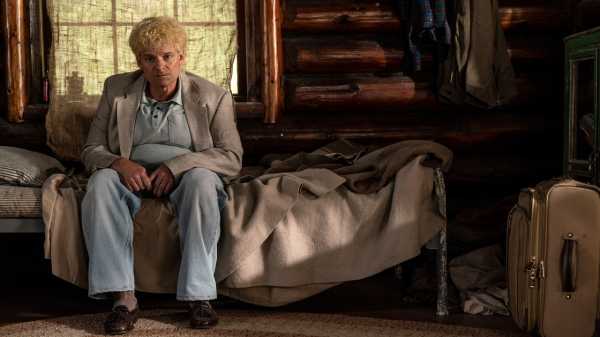
The six-episode miniseries “Valley of the Boom” (National Geographic) carries us back to the nineteen-nineties to juggle three true tales of the dot-com bubble. The most familiar charts the ups and downs of the Netscape Communications Corporation, with its seminal Web browser and legendary I.P.O. The most cautionary of the tales describes the fortunes of theglobe.com, an early social-networking site and prominent casualty of irrational exuberance. The most sensational reconstructs the spectacular collapse of Pixelon, an online-video service founded by a mesmerizing grifter.
The creator and director of this tech-biz triptych is Matthew Carnahan, who combines fictionalized narratives with documentary interviews of many of the principals, along with digital veterans including Mark Cuban and Arianna Huffington, who is an executive producer of the series. (“The boom was a product of what we now call FOMO,” Huffington says.) The hybrid documentary approach provides a scaffolding for understanding the players and the stakes, and it doesn’t disrupt the narrative momentum, as there is none. “Valley of the Boom” is like a strange swing through a living-history museum. In this context, twanging through the role of the Netscape C.E.O. James Barksdale—just after the real Barksdale has been onscreen supplying background—Bradley Whitford is not so much acting as reënacting.
I wonder if the Netscape co-founder Marc Andreessen, depicted as sub-arctic in his coldness and extraterrestrial in his arrogance, would have received a more sympathetic portrayal had he agreed to sit for an interview. But as the actor playing Andreessen (John Karna) breaks the fourth wall to explain, “The real Marc Andreessen would probably rather munch on a tasty snack of goat balls and broken glass than reminisce about the good old days at Netscape. . . . I’m just gonna try to stick to things Marc Andreessen actually said, or things he would be likely enough to say that, you know, he won’t sue us.” “Valley of the Boom” abounds with self-aware asides and fanciful fillips, and these are variously pandering, bizarre, and endearing. The show presents, amusingly, a Muppet-like rendering of Bill Gates at a press-conference lectern, but only after it offers a not-totally-joking written disclaimer that it does not intend to imply that someone is pulling his strings.
Some of these bits read as strained attempts to emulate the fun of Adam McKay’s adaptation of “The Big Short,” with its interpolated celebrity cameos explaining financial instruments and economic forces. But where McKay’s scenes clarify, these tend to confuse and clutter. The worst, which verges on minstrelsy, concerns a meeting between executives of Microsoft and Netscape in 1995, which later figured in the Microsoft antitrust case. The action in a conference room freezes so that two black guys, wearing Microsoft and Netscape hoodies, respectively, can enact a rap battle. A fish-eye lens reminiscent of a Hype Williams video captures them spitting deeply regrettable couplets: “The idea of the ‘Net flew over Bill Gates’s head / Andreessen, Clark, and Barksdale had the browser making bread.”
The show has no particular ambition to draw its characters as people. Rather, they are figures of Wild West lore and common cliché. (The closing credits identify one character as a “balding ponytail coder” and another as a “plain but cute coder.”) Despite some occasional gestures toward analysis—of the tulipomania of the times, and of the climate that charmed multi-billion-dollar valuations out of thin air—“Valley of the Boom” is essentially a madcap thriller about stock options and venture-capital pitches. It is very eager to revisit news reports shot at the Ferrari dealership in Los Gatos. For a show so impressed by money, though, it looks awfully cheap. Steve Zahn plays Pixelon’s Michael Fenne—a fugitive con artist who packed on pounds as a part of his disguise—while wearing the least persuasive fat suit ever seen on film; the camp quality of the bad padding matches Zahn’s clownish and sweaty performance.
The swindler is a gargoyle onto whom the series projects all of the horror and panic attendant to American capitalism. Otherwise, there’s a rah-rah tone even to its invocations of cataclysm, as when an actor playing a “pretend investment banker” fuses Seattle hip-hop and Irish poetry to gawk at “this orgy, if you will, of money and power . . . I mean, that big old juicy bubble. The center will not hold. That’s Yeats, bitch.” Lacking all conviction in the project of relating the dot-com boom to today’s economy, “Valley of the Boom” celebrates its ups and downs with passionate intensity. What little it has to say about how technology companies have shaped the world would not be out of place in a Facebook earnings call. Its bubbly optimism resembles an unsustainable spew of froth.
Sourse: newyorker.com